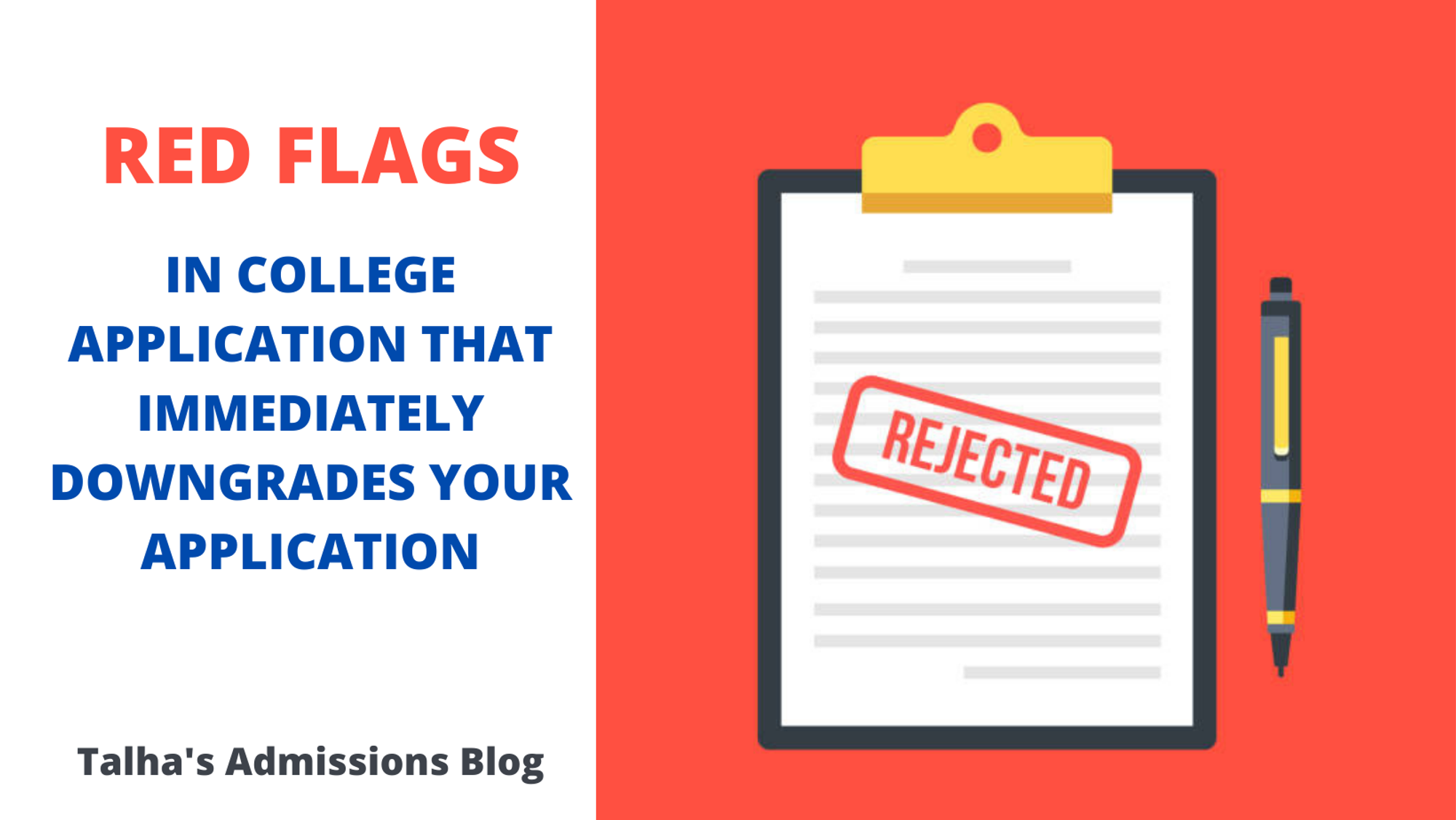Red flags in college applications that immediately downgrade your chances of acceptance.
- Find and replace issue: While writing “why college” essays, many applicants tend to write a generalized essay about why a college is great and then replace the college’s name when submitting it to a different college. In such an editing process, many applicants carelessly miss one or two mentions of the college’s name and it might turn out like this…”I love ‘Haverford’ College, the campus is so cool, great opportunities, good cricket team, etc. It would be an honor for me to attend ‘Bowdoin’ College. Such mistakes in college name or program name can lead you to an immediate rejection pool.
- Exaggeration in commitment time of Activities: While filling out the activities section, many applicants don’t keep in mind that there are only 160 hours in a week and there are only a few hours you can devote to each activity. Thus, they don’t calculate how many hours in total are they putting in the box for activities and that sometimes may lead to an hour count of 160+ or smth close to 160 which is ridiculously “not possible”. Admission officers take a close look at commitment time. So, calculate all the commitment time of activities as accurately as possible.
- Complaining in essays about scores/academic/school: The college application is not a place to complain about how you wish your SAT scores were better or how your school was shitty. The college application is for showing the true self and getting rewarded for that. Show things you’re good at and grateful for; that’s what AOs want to know. The college application is also not a place for you to talk about how much you admire someone unless the prompt is specifically asking about that.
- Not meeting deadlines: While some schools might be flexible on deadlines, many schools don’t forgive. Try submitting your application/scholarship application several days in advance in case accidents happen just before the deadline.
- Not making up to the predicted transcript: Sometimes applicants who apply with a predicted transcript forget that even if they get admitted, their admission offers can be “rescinded”, in other words, revoked if they don’t score up to or near the predictions. Don’t give up on academics after you get an admission offer; admission officers still review the final transcript and can make negative decisions if they find reasons to.
Some other red flags that aren’t an immediate rejection but pull down your application a lot.
- Writing about cliche topics on common app essay: Commonapp essay is a core part of the US college application and writing a sloppy essay can immediately showcase a poor impression of you. The first component many AOs read is the commonapp essay; so it’s important you avoid cliche topics. Examples of cliche topics are family circumstances, sports injuries, health issues, vacation, temporary volunteering, etc. While you can write about any of these topics if you have a unique perspective but it’s generally recommended to avoid these.
- Sloppy Activity Description: When you fill out the activities section, you have only 150 characters to describe your activity. Many applicants get baffled and end up talking about the activity itself rather than what they did in that activity. Remember, it’s not about what the activity is, it’s about what you did/accomplished in that activity. “Playing football” is not impressive, being the leader of the football team or playing important matches are what impress AOs. Focus on depth of commitment, leadership, and measurable impact.
- Writing generic “why college” essays: Many applicants use the same generic why college essay template and replace the name. When an AO reads your app, they’ll easily be able to tell when you have personal anecdotes that relate to that college or not. Thus, they figure out whether the essay is generic or not. Why college is sometimes more important than the commonapp essay. So put some effort into every why college essay before you apply.

